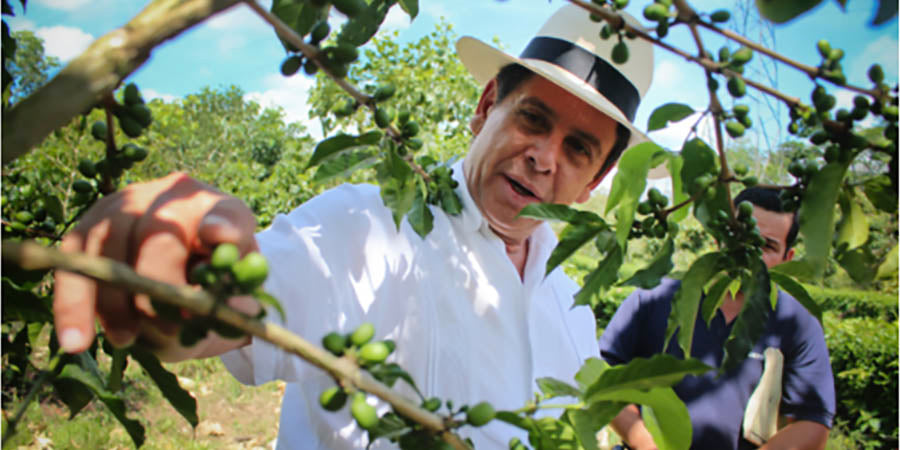Add description, images, menus and links to your mega menu
A column with no settings can be used as a spacer
Link to your collections, sales and even external links
Add up to five columns
Add description, images, menus and links to your mega menu
A column with no settings can be used as a spacer
Link to your collections, sales and even external links
Add up to five columns

Global Coffee Farming
April 17, 2018 2 min read
Global Coffee Farming
Coffee Farming: Global Coffee Farming and the Future of Coffee
Coffee farming is the backbone of a global industry that supports millions of farmers and provides one of the most beloved beverages worldwide. However, the future of coffee farming faces significant challenges due to climate change, pests, diseases, and genetic uniformity.
Coffee's Genetic Diversity Under Threat
The current coffee farming landscape is predominantly populated by plants descended from a limited number of coffee trees, leading to genetic uniformity. This lack of diversity makes coffee crops particularly susceptible to pests and diseases. One of the most severe threats is leaf rust, a fungal disease that can devastate coffee plantations and is increasingly resistant to fungicides.
The Center for Tropical Agricultural Research and Education (CATIE)
Located in Costa Rica, CATIE houses a collection of over 3,000 coffee trees from around the world, including wild varieties from Africa and diverse regions and altitudes. This collection serves as a vital resource for coffee breeders aiming to enhance genetic diversity and develop disease-resistant coffee varieties.
CATIE's coffee tree collection acts as a botanical storage vault, preserving the rich genetic heritage of coffee's ancient and wild African ancestors. This genetic repository is essential for the future of coffee farming, providing breeders with a broad spectrum of genetic material to combat the industry's challenges.
Breeding New Varieties of Coffee
Coffee breeders utilize CATIE's extensive collection to develop new coffee varieties that are resistant to leaf rust and other diseases while aiming to improve flavor and aroma. One promising hybrid is Catimor, a cross between Arabica and Robusta coffee. Catimor is resistant to leaf rust and yields a high volume of beans, although it does not match the superior flavor profile of traditional Arabica coffee.
The Future of Coffee Farming
The sustainability of coffee farming hinges on the development of new, resilient coffee varieties. By leveraging the genetic diversity preserved at CATIE, breeders can create robust coffee plants that withstand pests and diseases without sacrificing quality.
Consumers play a crucial role in supporting the future of coffee farming. By purchasing coffee from sustainable farms, consumers can help protect the environment and improve the livelihoods of farmers. Sustainable coffee farming practices are essential for maintaining the delicate balance of ecosystems and ensuring a stable future for coffee production.
How You Can Help
To support the future of coffee farming, consider buying coffee from sustainable sources. Look for certifications that indicate environmentally friendly and socially responsible farming practices. Additionally, stay informed about the challenges facing the coffee industry and support organizations dedicated to improving its sustainability.
By making conscious choices and supporting sustainable coffee farming, we can all contribute to preserving the rich heritage and future of global coffee farming.
Subscribe
Sign up to get the latest on sales, new releases and more …
